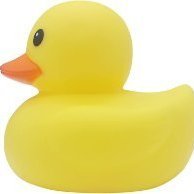I Just Don't Believe It!
-
Recently Browsing 0 members
- No registered users viewing this page.
-
Topics
-
-
Popular Contributors
-
-
Latest posts...
-
103
USA Epstein Files: Trump Informed Months Ago His Name Is Included
Oh,I bet you saved it!😄 -
1
UK Police chief: Move migrants from 'unsuitable' Epping hotel, close asylum centres
Of course it should be shut down. But the government won't want to back down. If protests are successful they will start elsewhere. The government are terrified of the people. It's a pressure cooker. Let's hope it remains peaceful. If the police ship in masked leftist thugs to try to instigate violence like they did in Essex, people need to rise above it. Don't take the bait. Don't play into their hands. -
131
Winning
i dont think Ive ever met someone that lacks more intelligence than you. You flip flop in any way to pu$$y out of being wrong. Your claim was trump wasnt the cause of the default on farms and agricultural companies. I gave you the facts that show he is equal if not more to blame but stupidity prevents comprehension. There will always be overlapping issues, positive and negative, in the change in admins. You want to blame everything on the one you dont like when its convenient and take create in the reverse on what someone else create or initiated. your done on this topic with me because I cant fix stupid when you believe you own lies. -
59
Thai - Cambodia Conflict Trump Threatens Tariff Talks Freeze Unless Thailand-Cambodia Ceasefire Is Reached
Thank you, Mr. President. You're the greatest president ever! -
59
Thai - Cambodia Conflict Trump Threatens Tariff Talks Freeze Unless Thailand-Cambodia Ceasefire Is Reached
Sounds like paradise, nothing like the smell of napalm in the morning.. -
404
Bombshell: Obama & Crew knew all along, Russia Russia was a hoax.
I like Sen. Schmitt from the State MO. He was the Atty General for the state that sued the Biden Adm. over Twitter free speech involvement. Missouri vs Biden. In July 2016 Hillary Hoax OPP's using Steele, was shared with Brennan ,who shared it with Obama.Barry latter on received the Inntel Assessment nixed it and Manufactured another including fake Putin/Trump allegations.
-
-
Popular in The Pub










Recommended Posts
Create an account or sign in to comment
You need to be a member in order to leave a comment
Create an account
Sign up for a new account in our community. It's easy!
Register a new accountSign in
Already have an account? Sign in here.
Sign In Now